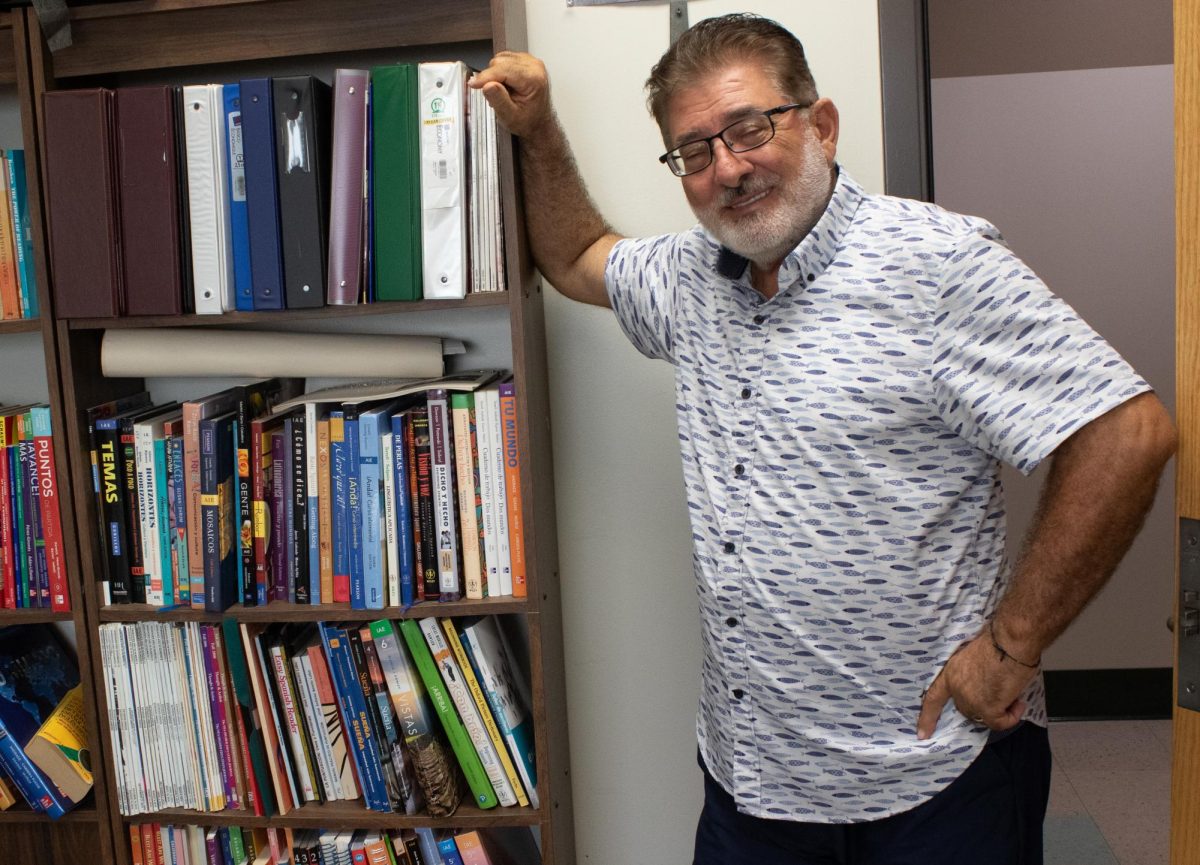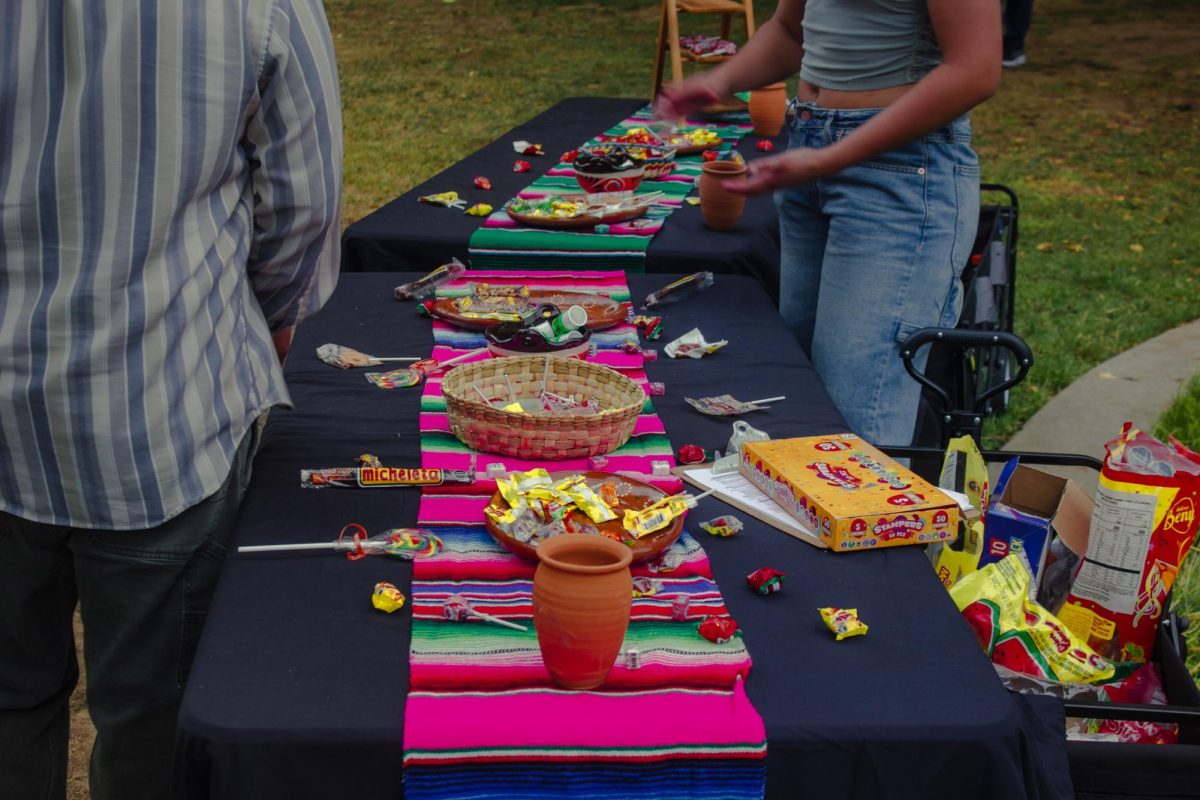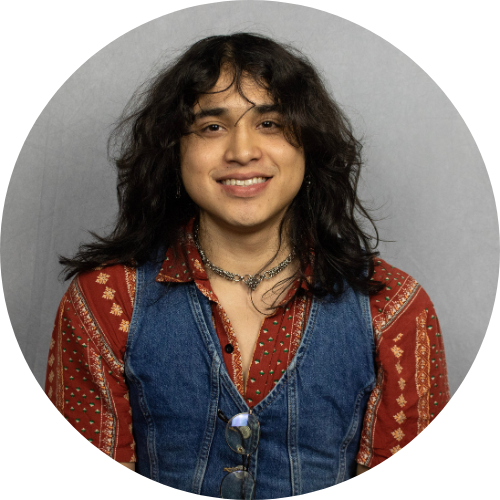Professor Clovis Karam has opened up many students and faculty to his own way of teaching and thinking. Karam has taught in multiple departments on the Sacramento State campus, from world languages to philosophy, impacting Sac State in his own unique way.
Karam has been teaching for 35 years in total, spending 12 at Sac State. He began his teaching journey at 18 years old in Lebanon, where he learned the importance of diversity.
“Teaching in Lebanon, you would expect people to be Lebanese and Middle Eastern. But there are over 18 different groups of people, and it is still as diverse as America,” Karam said. “Approaching diversity is not easy at all but teaching in Lebanon helped.”
Karam then went to teach at various places and countries, like Greece. He even taught in a war-torn Lebanon in order to provide for his family, despite losing texts, scriptures and documents during the war as many of the churches he grew up with were destroyed.
As Karam continued to gain experience and teaching throughout his years, he began travelling and researching theology as well as visiting sacred sites related to various subjects. By having hands-on experience, his understanding of topics, scriptures and ideas related to his studies allowed him to have an edge on educating his students. These experiences have translated to his teaching methodology, which he said he centers around the idea of “experience.”
“My rubric is creative and adaptable and asks, ‘What is your perspective?’ I want students to reflect on everything like a mirror and ask questions,” Karam said. “The methodology is one way to attract students and not waste time; they shouldn’t feel like they have to take the class. I want them to take the class to research and reflect on what they learn for themselves, rather than for the grade. The grade is my last worry in my teaching methodology.”
Karam’s methodology can be understood through the idea of human connection. Using his understanding of theology, he envisions his connection with his students on a spiritual level.
“My way of teaching and approaching the subject of humanity is not tainted by politics and instead focuses on the beauty in the universe,” Karam said.
Karam continued to describe the unique journeys his students take as well as the importance of accepting everyone’s beauty.
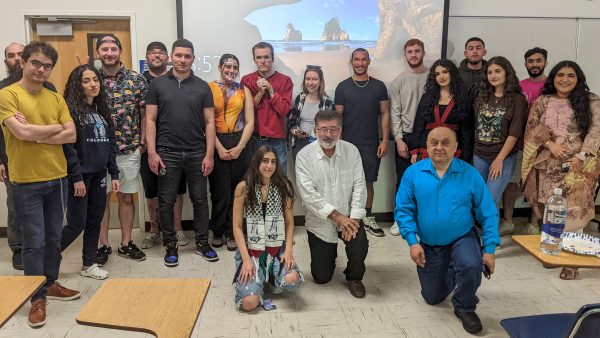
“Imagine yourself as a flower, and tell us your journey. How does a flower reflect your own beauty? None of us can pretend our beauty is better than others,” Karam said. “We are a bouquet. We are not all the same; we are unique. We have to accept the beauty people give.”
Karam’s reach has impacted multiple departments in many ways. Russel DiSilvestro, one of Karam’s closest friends and chair of the Department of Philosophy, commended Karam’s effort and drive to teach.
“I did notice some students appreciated his charisma and availability,” DiSilvestro said. “When I visited his classes, he drew on his experiences as a student and as a traveler, incorporating his own personal experiences.”
Karam’s focus has always been on his students. Since teaching from a young age, he has taken a focus on diversity and the sacredness of everyone’s journey. Learning to accept each other and to reflect is Karam’s goal for his students.
When students take time out of their day to go up and thank Karam for the lecture or share their own experiences and anecdotes he cherishes those moments. He shows his appreciation for the connection students can build with him, often engaging in activities like taking selfies with his classes and clubs.
Department of World Languages and Literatures Chair Curtis Dean Smith further commended Karam’s ability to integrate the importance of diversity in his way of teaching.
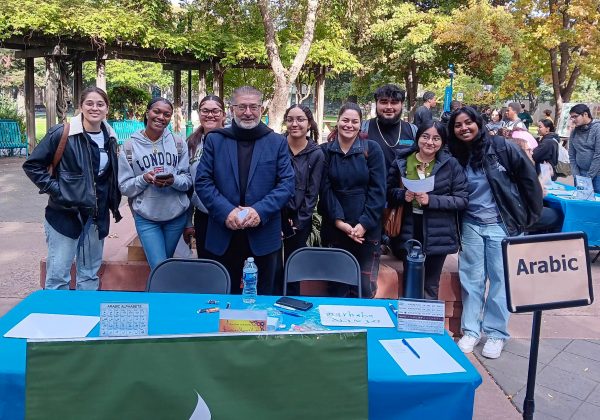
“When he talks about Arabic culture and civilization, he emphasizes the role of diversity in the Arabic-speaking world,” Smith said. “By teaching his classes really well, he has been able to maintain geopolitical and cultural diversity.”
Karam said students are more than a grade in a book. To Karam, students are the future.
“I don’t confront students; I give them choices. You have to reflect on yourself and your perspective. I will never fail you if you do exactly what is requested,” Karam said “If I see someone missing, I care and I email: ‘I’m here to help you keep the A. You are not numbers to me, you are flowers.’”
Karam’s impact has gone further than the student body. Using his way of teaching and energy, he inspires other faculty.
“All of us have to think that our own ideas are developed or maintained in a particular cultural and historical context. This could be a good thing and a bad thing,” DiSilvestro said. “Clovis does a good job helping us be sensitive to our own thinking and ideas.”
Smith continued to commend Karam’s commitment to teaching and education.
“The nature of the student body has changed dramatically in the last five years,” Smith said. “Having someone like Dr. Karam, that has tireless energy and love for the students, is refreshing.”
RELATED : State Hornet Spotlight: Sac State professor on becoming a Multi-Hyphenate
What Karam wants people to get out of his teaching is appreciation for everything in people’s lives.
“I want people to reflect and not take anything for granted, especially for me who lived through war and different experiences,” Karam said. “Appreciate the moments with your family and don’t take them for granted. You are in America, and everything is provided. Open your eyes.”


